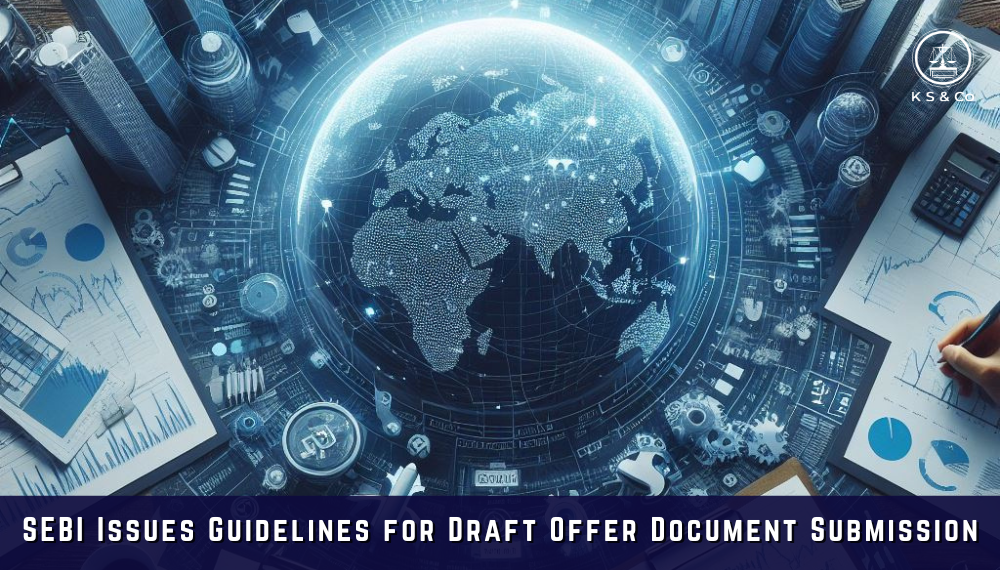On January 24, 2024, MCA and the Ministry of Finance introduced the Companies (Listing of equity shares in permissible jurisdictions) Rules 2024 and amended the Foreign Exchange Management (Non-debt Instruments) Rules, 2019.
Permissible Jurisdictions and Exchanges: The new rules identify the International Financial Services Centre in India (GIFT City) as the eligible jurisdiction, with NSE International Exchange (NSEIX) and India International Exchange (India INX) as the permitted stock exchanges.
Note: IFSC stands for International Financial Services Centre set up under section 18 of the Special Economic Zones Act, 2005 and regulated under the International Financial Services Centres Authority Act, 2019. GIFT IFSC is the maiden IFSC set up in India. One of the main objectives of IFSC is to ‘onshore the offshore’ i.e. bringing back those India-related financial services and transactions that are currently carried outside of India. Further, the objective of IFSC is to develop a strong global connection and focus on the needs of the Indian economy as well as to serve as an international financial platform for the entire region and the global economy as a whole.
Eligibility Criteria: Under the Scheme, only public Indian companies, listed or unlisted, are allowed to issue and list their shares on an international exchange. As of now, the framework allows unlisted public Indian companies to list their shares on an international exchange. SEBI is in the process of issuing the operational guidelines for listed public Indian companies.
Eligible Public Indian companies:
Para 3 of the Direct Listing Scheme provides that a public Indian company shall be eligible to issue equity shares in permissible jurisdiction, if-
(a) the public Indian company, any of its promoters, promoter group or directors or selling shareholders are not debarred from accessing the capital market by the appropriate regulator;
(b) none of the promoters or directors of the public Indian company is a promoter or director of any other Indian company which is debarred from accessing the capital market by the appropriate regulator;
(c) the public Indian company or any of its promoters or directors is not a wilful defaulter;
(d) the public Indian company is not under inspection or investigation under the provisions of the Companies Act, 2013 (18 of 2013);
(e) none of its promoters or directors is a fugitive economic offender
Additional eligibility conditions may be specified by the permitted international exchanges under their regulations.
Compliance Requirements: Unlisted public companies and listed public companies must adhere to regulations set by SEBI or the International Financial Services Centres Authority. SEBI is in the process of issuing the operational guidelines for listed public Indian companies. They are required to file a prospectus in e-Form LEAP-1 within seven days after the same has been finalised and filed in the permitted international stock exchange. This Form will be required to be filed in the MCA-21 Registry electronically for record purposes.
Direct Listing Scheme: Permissible holders can invest in equity shares of Indian companies listed or to be listed on international exchanges under a specific scheme outlined in Schedule XI. For the purposes of this clause, the permissible holder is not a person resident in India.
Conclusion:
MCA’s regulatory framework offers unlisted public companies the chance to directly list, pending further SEBI regulations. MCA’s rules stress clear eligibility criteria and compliance standards, laying crucial groundwork for companies seeking international market entry. The Scheme enables public Indian companies, especially startups and those in technology sectors, to tap into global capital markets beyond domestic exchanges. This move is anticipated to enhance the valuation of Indian firms to global standards, attract foreign investment, unleash significant growth prospects, and diversify the investor pool. Transactions on IFSC stock exchanges occur in foreign currency, mitigating currency risks for investors. Public Indian companies gain flexibility to access both domestic markets for INR capital and international markets at IFSC for foreign currency capital from global investors. This initiative particularly benefits Indian companies expanding globally, aiming to broaden their presence in foreign markets.








